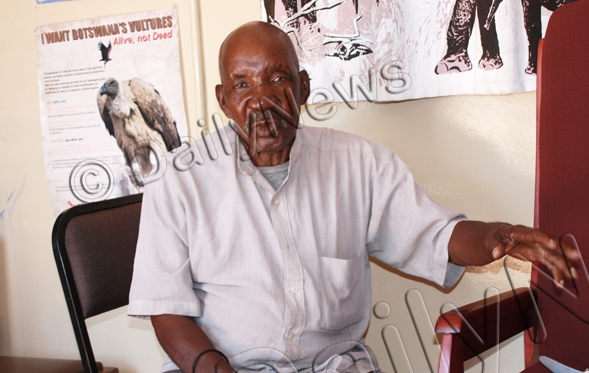Donkey rustling leaves Matopi in lurch
27 Mar 2019
Systematic and rampant donkey rustling, which became entrenched along border villages in the North East District in the last few years has left Matopi village with only four donkeys.
While the practice of cattle rustling is an ancient practice in rural and marginal communities suffering from social and economic challenges, the rustling of donkeys at such a grand scale is unheard of.
The cross-border criminal enterprise, which was allegedly perpetrated by criminal syndicates from Zimbabwe became a menace to the extent that as a precaution, residents built donkey kraals inside their homesteads to protect their draught power.
This is despite the prevalence of border patrols by both the army and the police’s Special Support Group (SSG) along the cordon fence near the Botswana-Zimbabwe boundary line. In the process, hundreds of families were left poorer as both day and night raids by the menacing criminals became the order of the day. Matopi deputy chief, Kgosi Madoda Mooketsi narrated the agonising ordeal in an interview recently.
According to the traditional leader, what has since emerged was that the donkey rustlers were mere foot soldiers while the masterminds behind the rustling cartel were game farmers who breed lions in their farms in the neighboring country. Kgosi Mooketsi further mentioned that the criminals had no use for cattle as could be seen by the rising herd within the village since government replaced those that were killed during the foot and mouth outbreak a few years ago.
He has no explanation on why cattle were being spared in these frenzied dawn raids. The donkey rustling axis is not only restricted to Matopi as neighboring Matsiloje has also fallen victim in the past. Matsiloje was, however lucky as some of their stolen donkeys were tracked and recovered by police in Zimbabwe to the jubilation of the farmers. Some of the recovered animals had their brand marks gruesomely tampered with. However, Matopi was the epicenter of the donkey rustling syndicates and the impact is felt more severely here despite the number of years that have passed.
While appreciating government efforts to stem the tide of donkey rustling in his village through the patrols by security personnel, Kgosi Mooketsi highlighted that the people had nothing to show as thieves cleaned off the village’s remaining herds of donkeys.
He said that the criminals seemed to prepare and plan before raiding the village as evidenced by the fact that they pounced immediately after a patrol which lends credence to the suspicion that they had observation points where they monitored the movement of security patrols. The raids, he added, were planned and executed with precision which included cutting the cordon fence and driving the donkeys across the border with lightning speed.
“The four remaining donkeys escaped the rustler’s wrath because they were kept under 24-hour guard inside the homestead,” noted Kgosi Mooketsi. While Kgosi Mooketsi highlighted that peace were reigning in the village since the donkey rustling raids stopped, he was quick to point out that it was the kind of peace that was bittersweet.“We are not celebrating that they are no longer coming because we know that they have finished their job.
They have dispossessed us of our valuable assets because we used them to plough and carry goods such as firewood. We also relied on donkeys to travel to faraway places such as lands and cattle posts,” he bitterly agonizedDonkey rustling, he also explained, did not only impoverish residents, it also posed a threat to public safety and security in that the criminals were daring and prepared to do anything to carry out their mission.
During its peak, in the last few years, Kgosi Mooketsi said that donkey rustling created a sense of insecurity among residents and hampered their productivity and impacted on livelihood sustaining activities such as farming. ends
Source : BOPA
Author : Puso Kedidimetse
Location : MATOPI
Event : Interview
Date : 27 Mar 2019






